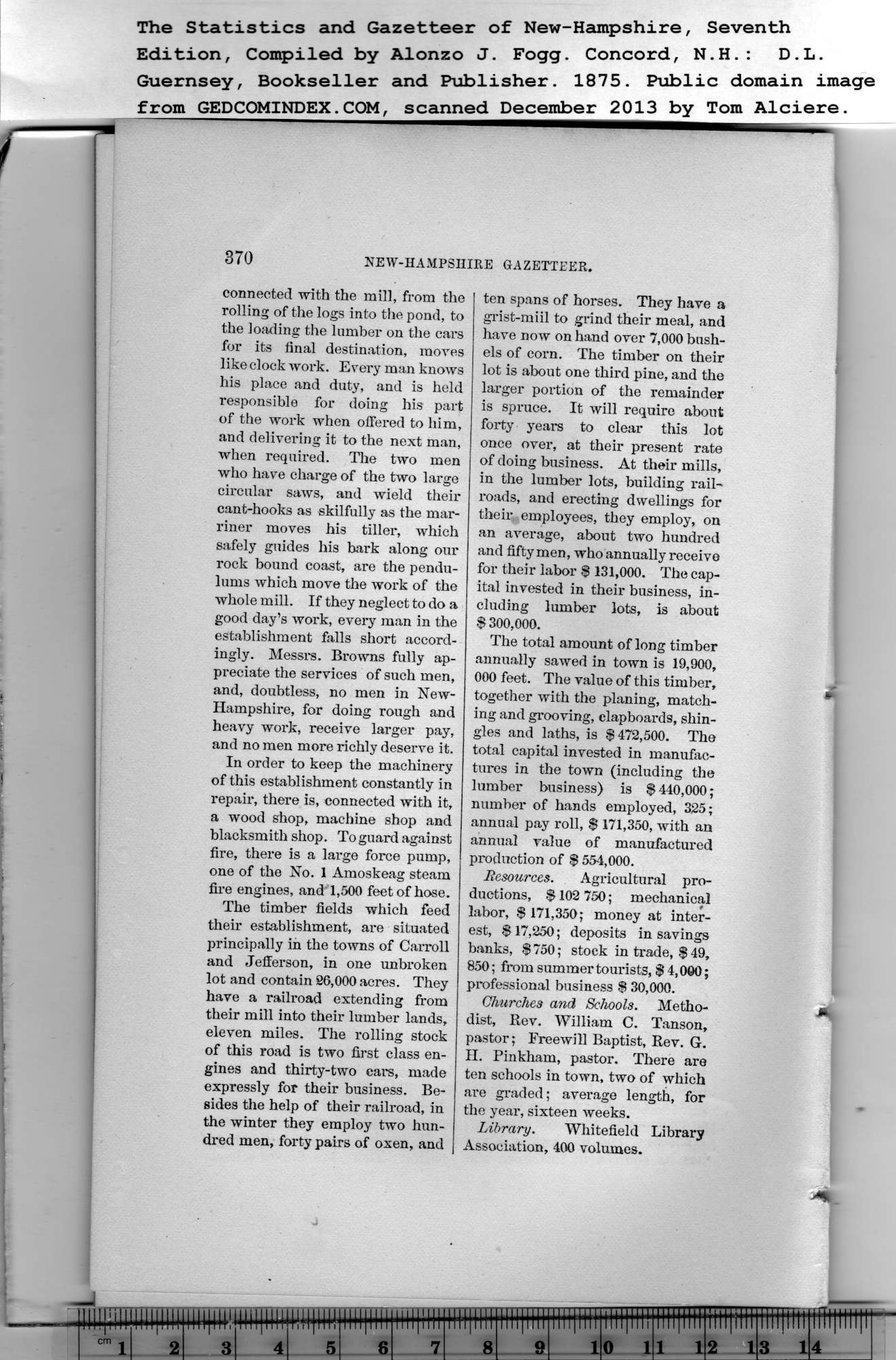|
connected with the mill, from the
rolling of the logs into the pond, to
the loading the lumber on the cars
for its final destination, moves
like clock work. Every man knows
his place and duty, and is held
responsible for doing his part
of the work when offered to him,
and delivering it to the next man,
when required. The two men
who have charge of the two large
circular saws, and wield their
cant-hooks as skilfully as the mar-
riner moves his tiller, which
safely guides his bark along our
rock bound coast, are the pendu-
lums which move the work of the
whole mill. If they neglect to do a
good day’s work, every man in the
establishment falls short accord-
ingly. Messrs. Browns fully ap-
preciate the services of such men,
and, doubtless, no men in New-
Hampshire, for doing rough and
heavy work, receive larger pay,
and no men more richly deserve it.
In order to keep the machinery
of this establishment constantly in
repair, there is, connected with it,
a wood shop, machine shop and
blacksmith shop. To guard against
fire, there is a large force pump,
one of the No. 1 Amoskeag steam
fire engines, and 1,500 feet of hose. |
The timber fields which feed
their establishment, are situated
principally in the towns of Carroll
and Jefferson, in one unbroken
lot and contain 26,000 acres. They
have a railroad extending from
their mill into their lumber lands,
eleven miles. The rolling stock
of this road is two first class en-
gines and thirty-two cars, made
expressly for their business. Be-
sides the help of their railroad, in
the winter they employ two hun-
dred men, forty pairs of oxen, and
ten spans of horses. They have a
grist-miil to grind their meal, and
have now on hand over 7,000 bush-
els of corn. The timber on their
lot is about one third pine, and the
larger portion of the remainder
is spruce. It will require about
forty years to clear this lot
once over, at their present rate
of doing business. At their mills,
in the lumber lots, building rail-
roads, and erecting dwellings for
their employees, they employ, on
an average, about two hundred
and fifty men, who annually receive
for their labor $ 131,000. The cap-
ital invested in their business, in-
cluding lumber lots, is about
$ 300,000.
The total amount of long timber
annually sawed in town is 19,900,
000 feet. The value of this timber,
together with the planing, match-
ing and grooving, clapboards, shin-
gles and laths, is $472,500. The
total capital invested in manufac-
tures in the town (including the
lumber business) is $ 440,000;
number of hands employed, 325;
annual pay roll, $ 171,350, with an
annual value of manufactured
production of $ 554,000.
Resources. Agricultural pro-
ductions, $ 102 750; mechanical
labor, $ 171,350; money at inter-
est, $ 17,250; deposits in savings
banks, $750; stock in trade, $ 49,
850; from summer tourists, $ 4,000;
professional business $ 30,000.
Churches and Schools. Metho-
dist, Rev. William C. Tanson,
pastor; Freewill Baptist, Rev. G.
II. Pinkham, pastor. There are
ten schools in town, two of which
are graded; average length, for
the year, sixteen weeks.
Library. Whitefield Library
Association, 400 volumes. |
